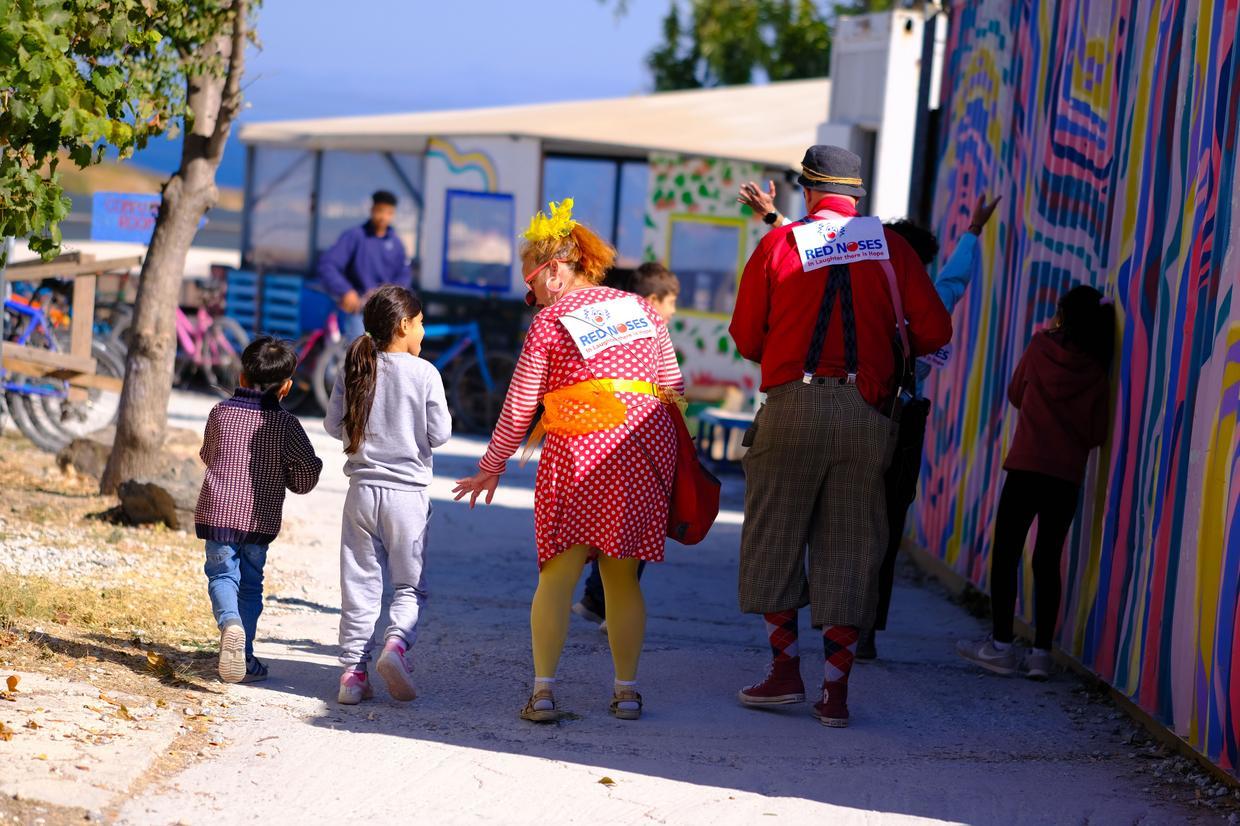Words of solidarity, acts of humanity: World Refugee Day
Words matter. They shape how we see the world—and the people in it. And on World Refugee Day, that matters more than ever.
This year’s theme is ‘solidarity with refugees.’ Because true solidarity means more than offering sympathy. It means listening. It means standing up for people’s right to safety, dignity, and hope.
We would like to inform you that after activation of the video data is transmitted to the provider. More information can be found in our Data protection
ACTIVATE VIDEORefugee, asylum seeker, migrant—why it matters what we say
Let’s begin with the basics.
A migrant is someone who chooses to move, often for work, education, or to reunite with family. A refugee is someone forced to flee their home due to war, violence, or persecution.
And an asylum seeker? That’s someone requesting international protection—someone who may be a refugee, but whose claim hasn’t yet been officially recognised.
These definitions aren’t just legal terms—they’re about people. Families. Children. Each with their own story. And when we misuse or blur these words, we risk erasing their experiences.
As with any organisation committed to providing the best service to the people they work with, at RED NOSES we often discuss and reflect on which terminology we should use—what the best words are to talk about the people we work with.
More than the legal status of the people we meet, we are interested in the full picture of their migration experience—their stories, identities, values, and hopes—in order to design artistic activities that create genuine human-to-human connection.
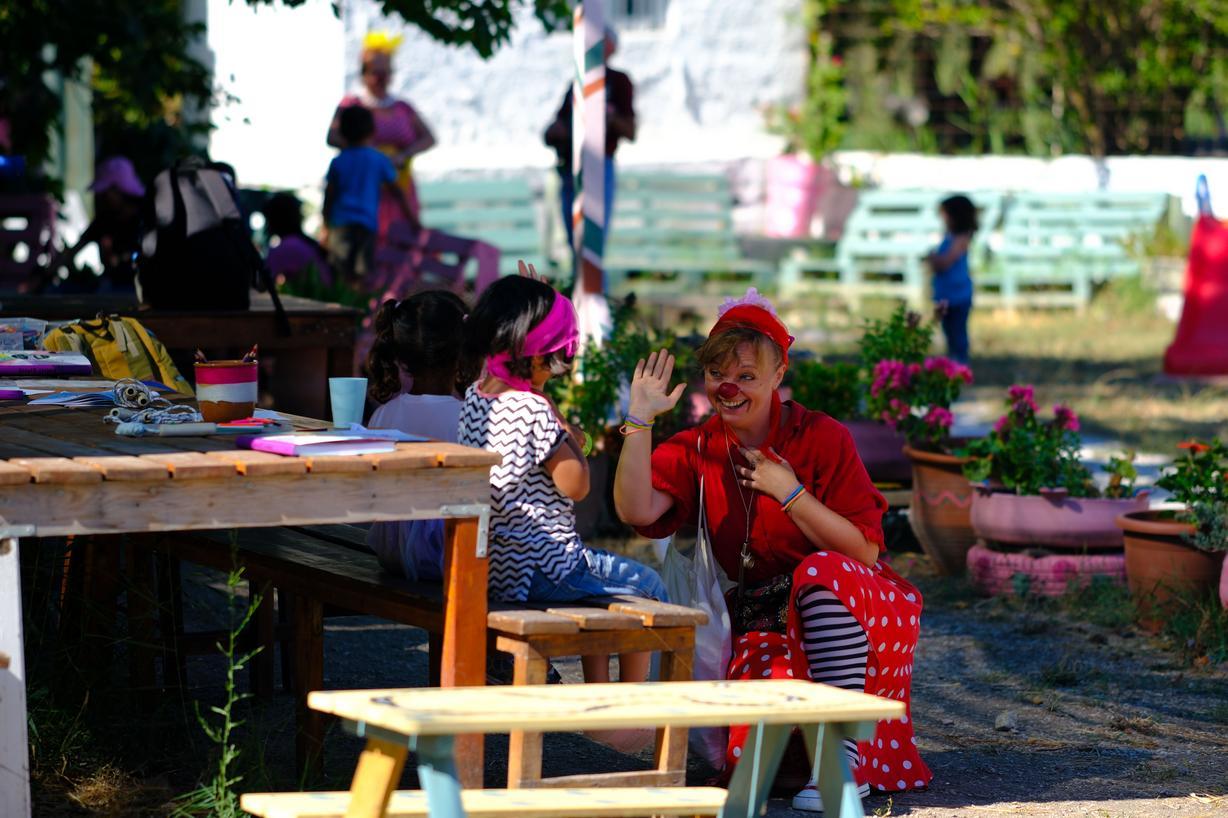 Enlarge photo
Enlarge photoMore than 43 million reasons to care
Right now, over 43 million people are officially recognised as refugees—the highest number in history. These are people who’ve had to leave everything behind: their homes, communities, and often their loved ones.
Many have spent years in limbo, waiting to rebuild their lives. Others are trying to adjust to new countries, cultures, and languages—all while carrying the weight of displacement.
Behind each number is a person. And behind each person is a voice that deserves to be heard.
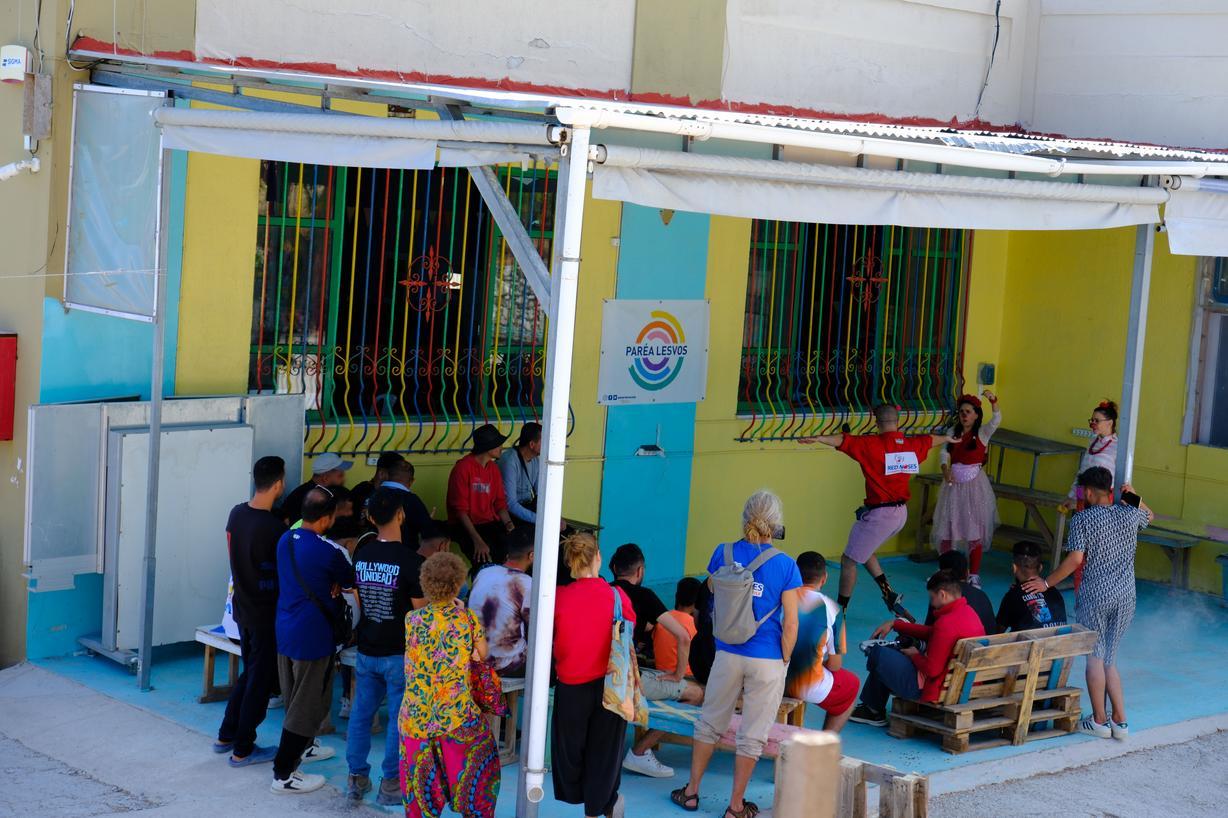 Enlarge photo
Enlarge photoSolidarity is more than a slogan
Real solidarity means showing up—not just with kind words, but with real support.
It means:
- Defending the right to seek safety—whoever and wherever you are
- Listening to displaced people voices—not speaking over them
- Creating opportunities for people to thrive, not just survive
- Supporting host communities—and making sure they have the tools to include and welcome newcomers
- Choosing words that reflect empathy, not fear
Solidarity means saying clearly and courageously: we will not turn our backs.
Where RED NOSES fits in
At RED NOSES International, we believe in the power of humour, even—and especially —in difficult places.
Our professional clown artists visit shelters, camps, community centres and temporary homes across Europe and beyond. We bring laughter where it’s needed most—to children who’ve witnessed too much, to families living in uncertainty, to people who haven’t smiled in a while.
Our work doesn’t solve everything. But in those moments of play, joy, and connection, something shifts. The atmosphere softens. A child remembers what it feels like to laugh. A parent feels seen. A family breathes a little lighter.
Humour doesn’t ask for passports. Laughter knows no borders. And neither do we.
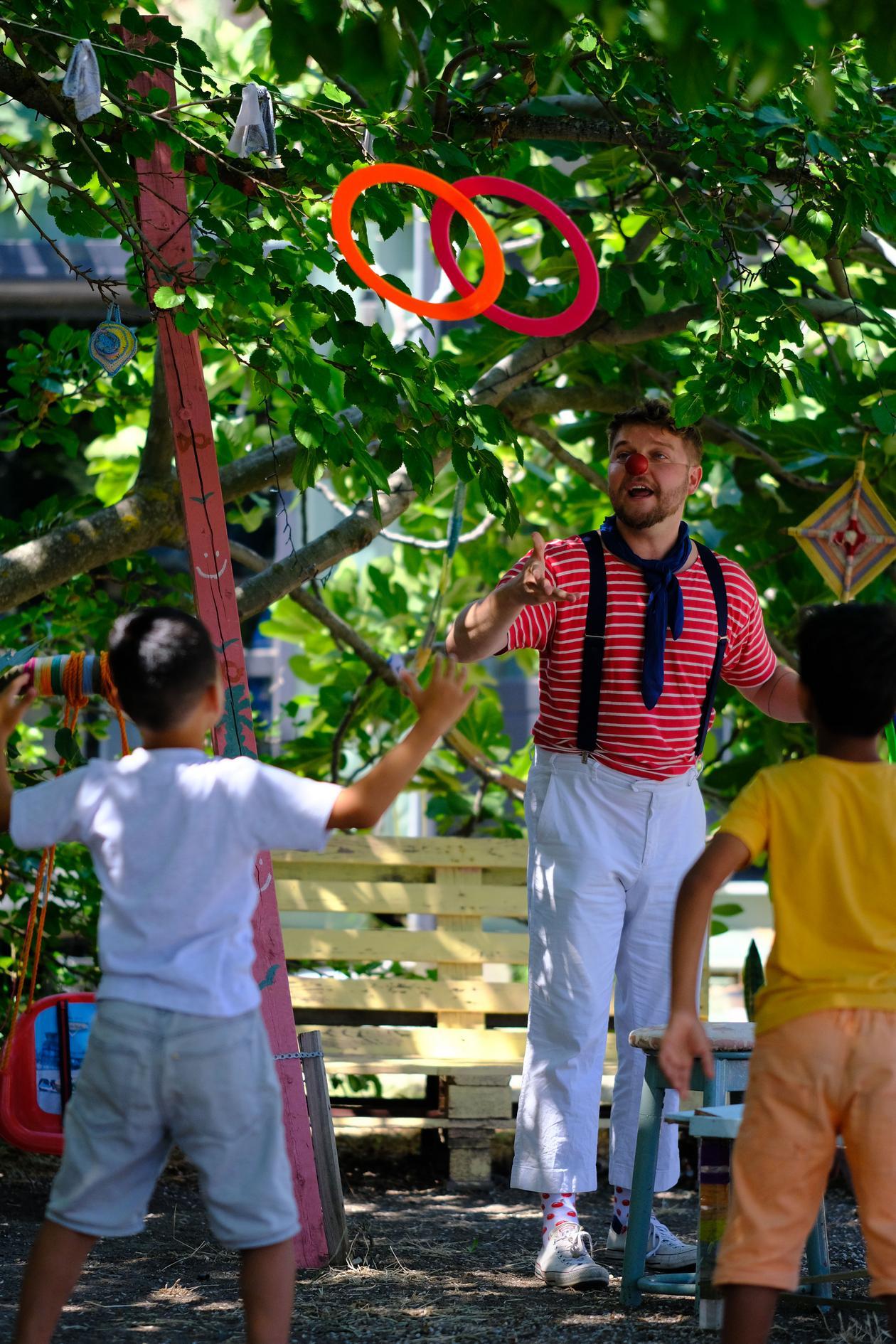 Enlarge photo
Enlarge photoHow we speak is where solidarity begins
The way we talk about displaced people matters.
When the media speaks of waves or floods, it dehumanises. When we call someone illegal, we reduce them to a problem. But when we choose words like neighbour, family, person—we build connection, not division.
Language has the power to close doors—or to open them wide.
So today, let’s choose our words carefully. Let’s talk about displaced individuals with the dignity and compassion they deserve. And then, let’s back those words with action.
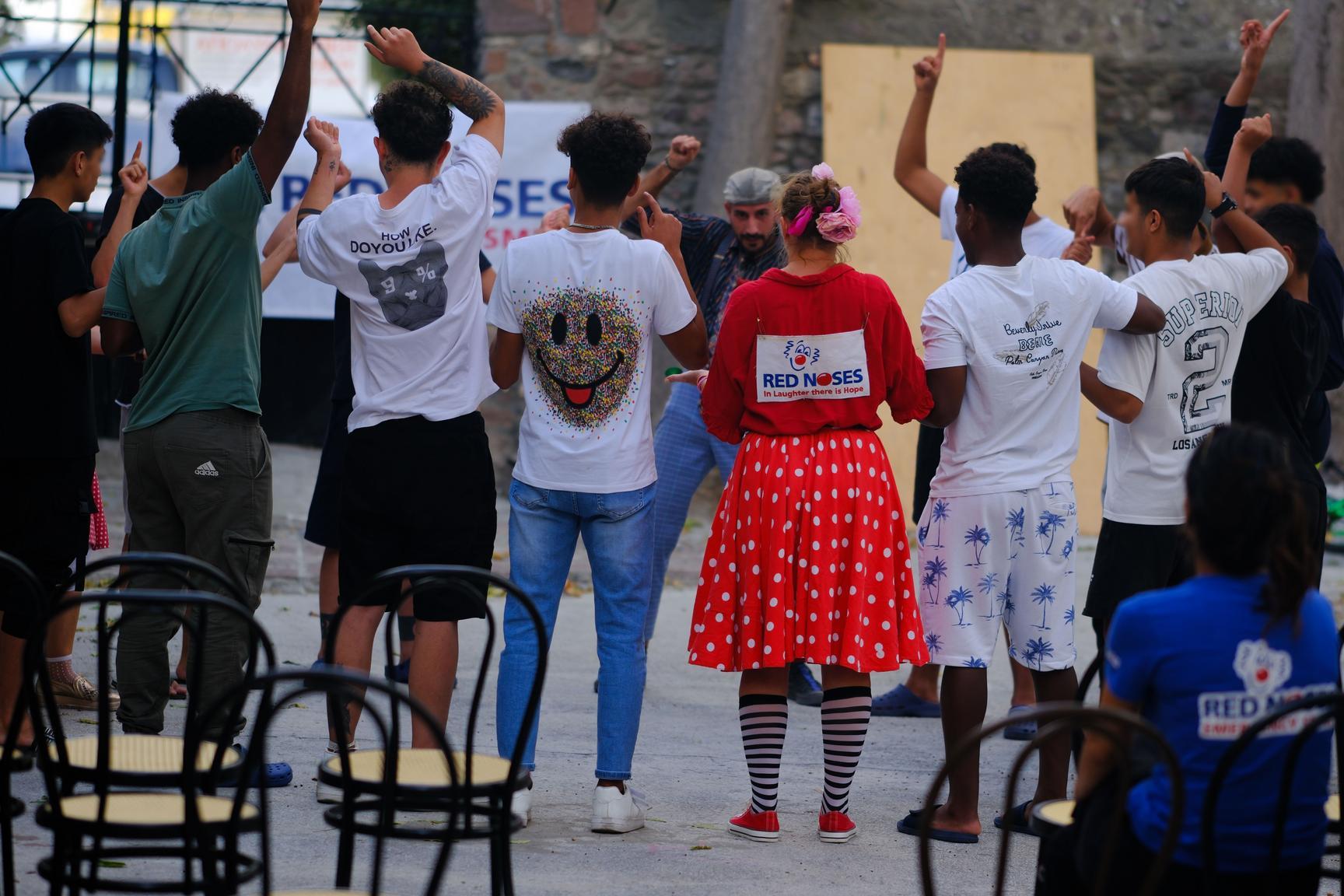 Enlarge photo
Enlarge photo
